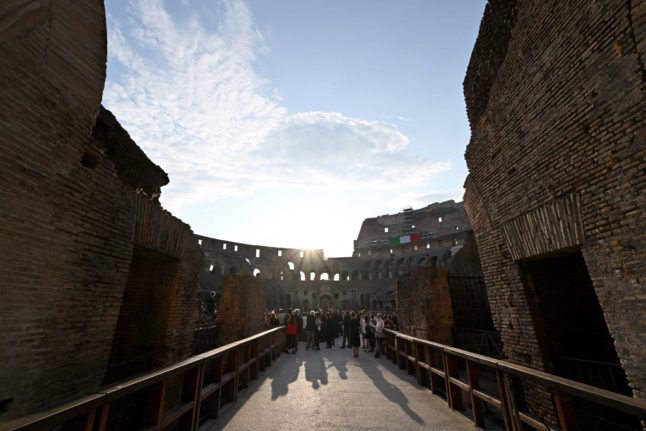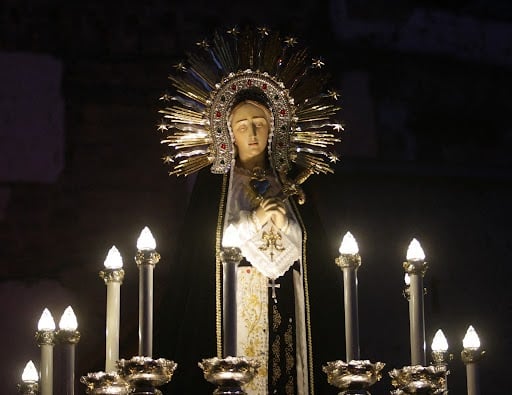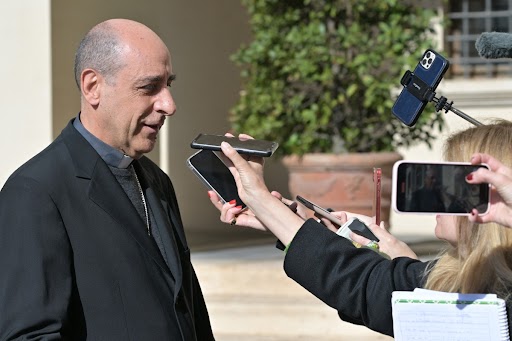The Colosseum archaeological park’s director Alfonsina Russo said on Monday that such acts of vandalism at the site were caused by “ignorance”.
READ ALSO: Anger in Italy as another tourist caught carving initials into Rome’s Colosseum
“There is a lack of civic education about heritage. There is a lack of a priori knowledge of what people are visiting,” Russo said in an interview with newspaper Il Messaggero on Monday.
“We have signs everywhere [detailing the laws against vandalism], on the website and on site, but only a minority read them,” she said.
“The will of the tourist-vandal is to leave their own mark, because we are by now a society oriented towards ourselves
“See the 25,000 tourists who visit the Colosseum every day who are primarily interested in taking selfies,” she said.
A 17-year-old German tourist was the latest to be reported for allegedly damaging brickwork at the site on Saturday by scratching the walls, just one day after a 17-year-old Swiss visitor was caught on camera doing the same.
Less than a month earlier, a 27-year-old Bulgarian fitness instructor had sparked outrage across Italy by carving “Ivan+Hayley 23” into an inner wall at the Unesco Heritage Site.
He later admitted in a letter of apology to Rome’s mayor that he had not been aware of “the antiquity of the monument”.
In the last six years, the number of people charged with ‘defacement of cultural heritage’ has increased steadily, though many more cases likely went undetected, reported Il Messaggero.
Anyone found guilty of causing damage to a site of historical and artistic interest in Italy can face a fine of up to €15,000 and even a prison sentence of up to five years.
Russo noted that parliament was set to give the green light to a new draft law making these penalties harsher.
Ministers in April gave preliminary approval to plans to increase the maximum fine for defacing cultural property to €40,000, while anyone damaging or destroying monuments could be fined up to €60,000, with possible prison terms of up to seven years.




 Please whitelist us to continue reading.
Please whitelist us to continue reading.
i’d love to see these vandals get hit with heavy fines.. they seem to only get a slap on the wrist.. one person fined €15,000 would surely make a big difference in terms of reducing potential for future vandalism..
It’s not a “lack of prior knowledge”, it is purely arrogance, a don’t take care attitude and a mindless shot for insta and likes. These morons who deface monuments should be fined heavily, then kicked out of the country. Only heavy fines and loss of their tourist money with being shown the exit is going to deter these idiots.